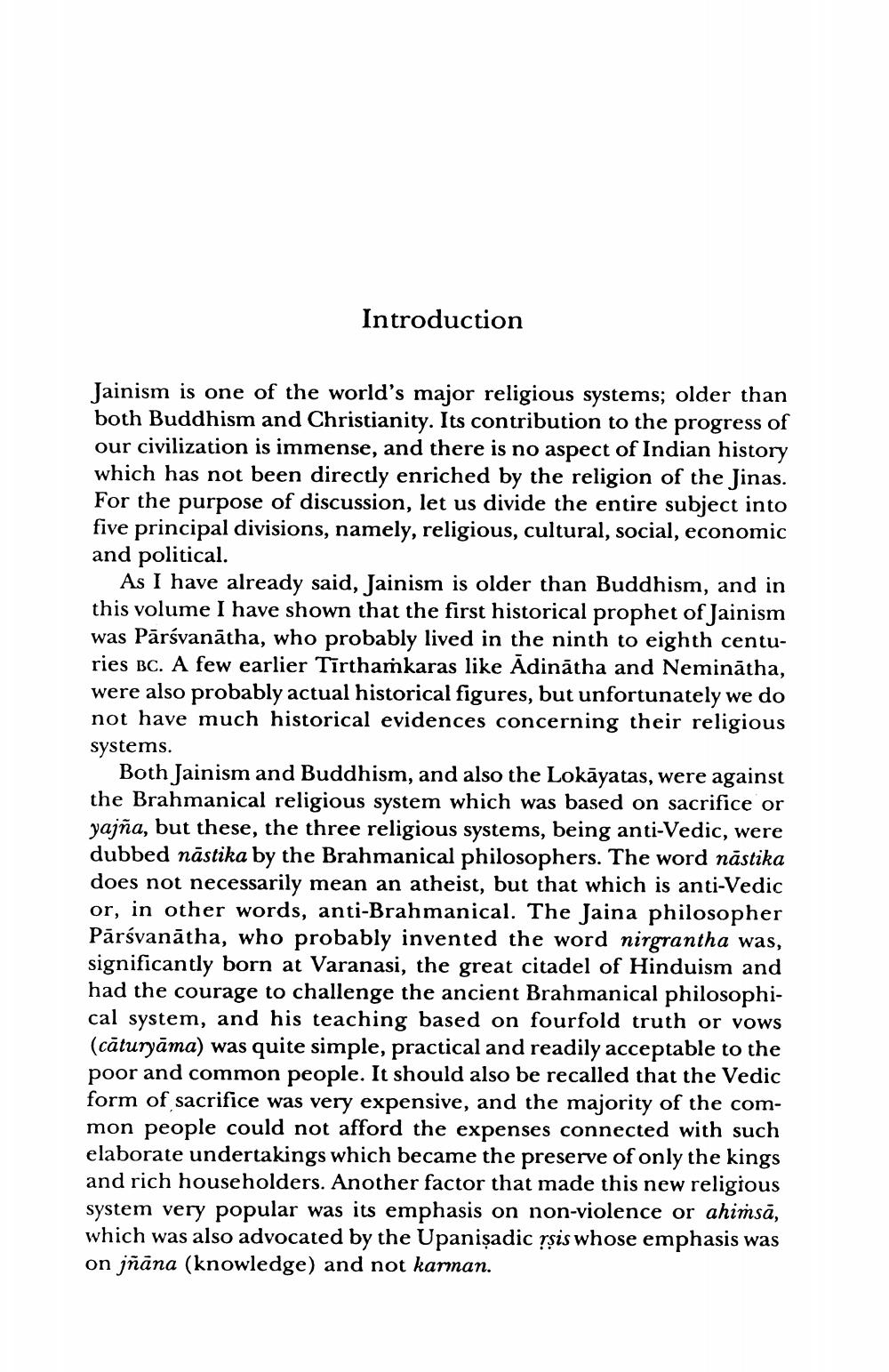________________
Introduction
Jainism is one of the world's major religious systems; older than both Buddhism and Christianity. Its contribution to the progress of our civilization is immense, and there is no aspect of Indian history which has not been directly enriched by the religion of the Jinas. For the purpose of discussion, let us divide the entire subject into five principal divisions, namely, religious, cultural, social, economic and political.
As I have already said, Jainism is older than Buddhism, and in this volume I have shown that the first historical prophet of Jainism was Pārsvanātha, who probably lived in the ninth to eighth centuries BC. A few earlier Tirthamkaras like Adinātha and Neminātha, were also probably actual historical figures, but unfortunately we do not have much historical evidences concerning their religious systems.
Both Jainism and Buddhism, and also the Lokāyatas, were against the Brahmanical religious system which was based on sacrifice or yajña, but these, the three religious systems, being anti-Vedic, were dubbed nästika by the Brahmanical philosophers. The word năstika does not necessarily mean an atheist, but that which is anti-Vedic or, in other words, anti-Brahmanical. The Jaina philosopher Pārsvanātha, who probably invented the word nirgrantha was, significantly born at Varanasi, the great citadel of Hinduism and had the courage to challenge the ancient Brahmanical philosophical system, and his teaching based on fourfold truth or vows (cāturyāma) was quite simple, practical and readily acceptable to the poor and common people. It should also be recalled that the Vedic form of sacrifice was very expensive, and the majority of the common people could not afford the expenses connected with such elaborate undertakings which became the preserve of only the kings and rich householders. Another factor that made this new religious system very popular was its emphasis on non-violence or ahimsā, which was also advocated by the Upanișadic îșis whose emphasis was on jñāna (knowledge) and not karman.




